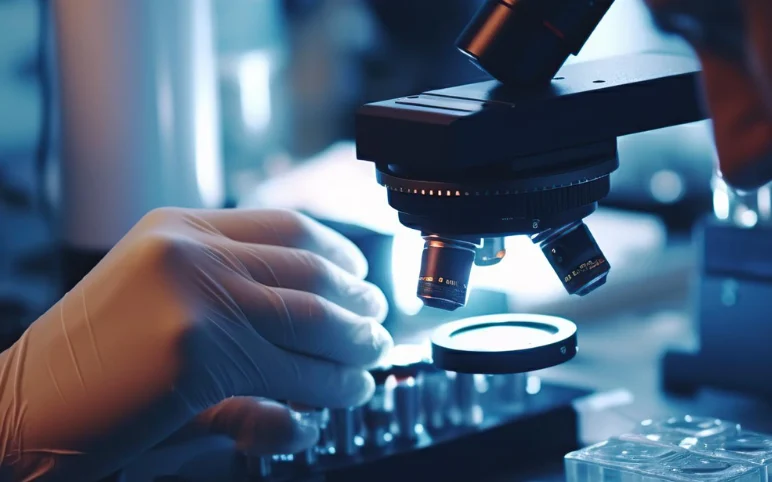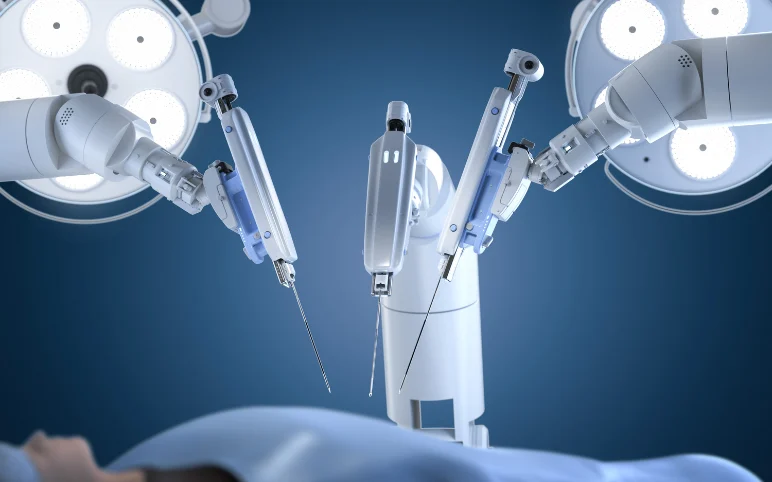GE HealthCare Launched CardioVisio for Atrial Fibrillation, a Digital, Patient-Centric Clinical Decision Support Tool to Enable Precision Care
On August 24, 2023, GE HealthCare launched CardioVisio for Atrial Fibrillation (AFib), a digital tool designed to assist clinicians in visualizing longitudinal data relevant to disease progression from multiple data sources and driving evidence-based clinical decision support directed by up-to-date AFib guidelines.
More than 60% of deaths caused by cardiovascular diseases are avoidable and premature, making them the leading cause of death worldwide. AFib is the most prevalent arrhythmia diagnosed in clinical practice under the category of cardiovascular disease, affecting millions of people worldwide. Up to 30% of cases of AFib are missed in routine clinical practice, and the condition is frequently misdiagnosed or improperly treated. Progress in driving precision care for the management of patients with AFib is essential because those with the condition are five times more likely to have a stroke and because AFib is a frequent reason for hospitalization.
CardioVisio for AFib helps the clinician visualize longitudinal data from various data sources that are pertinent to the progression of the disease, saving time and assisting clinical decision-making by providing recommendations for therapy that are guided by guidelines.
The healthcare provider can audit and modify the process and output of each automated step to better meet the needs of each AFib patient. Each automated step also includes explainability and traceability.
“Existing diagnosis and treatment care models for AFib are complex, time-consuming, and disconnected with disparate guidelines and poor guideline adherence,” said Eigil Samset, Ph.D., general manager, of Cardiology Solutions, GE HealthCare. Eigil Samset also added, “With CardioVisio for AFib, we’re providing cardiologists with a powerful tool that streamlines clinician image interpretation and provides a view of the history of the patient’s heart as well as their healthcare journey, including previous diagnoses, prescribed medications, interventions, and comorbidities.”
“Our busy clinicians face a multitude of disparate patient data generated from years of diagnostic exams, medications, medical appointments, and interventions,” said Dr. Kenneth Civello, Electrophysiologist and Cardiologist with Louisiana Cardiology Associates at Our Lady of the Lake Physician Group. Dr. Kenneth commented, “CardioVisio for AFib incorporates algorithms that intake available relevant data as triggers for industry-published guidelines which can help ease the burden of data overload on our staff and will enable us as healthcare providers to provide timelier, personalized, and evidence-based care to our patients.”
As per DelveInsight’s “Cardiac Arrhythmia Monitoring Devices Market” report, the global cardiac arrhythmia monitoring devices market will grow at a CAGR of 6.33% during the forecast period from 2023 to 2028. The increase in demand for cardiac arrhythmia monitoring products is primarily attributed to the rising prevalence of cardiovascular diseases, rising expenditure on cardiac health globally, rising adoption of mobile and telemetry cardiac monitors, rising prevalence of cardiac arrhythmias, rising technological advancements in monitoring devices, among others are also expected to bolster the demand for these services during the forecast period (2023-2028).
Johnson & Johnson set to Unveil Elita Laser Correction Platform
On August 30, 2023, Johnson & Johnson Vision is awaited to unveil its Elita laser correction device for minimally invasive surgical correction of myopia. Myopia (short-sightedness) can be surgically corrected with minimally invasive techniques.
When the 41st European Society of Cataract and Refractive Surgeons (ESCRS) Congress takes place in Vienna, Austria, from September 8 to 12, 2023, the platform will be on display at the J&J Vision booth.
Myopia is an eye refractive error that causes distant objects to appear blurry. It is frequently linked to astigmatism, a condition where either the eye’s cornea or lens is not the right shape, causing vision to become blurry.
The lenticular is a tiny biconvex tissue that is created by the Elita system using laser pulses and can be removed using a procedure called SILK (Smooth Incision Lenticule Keratomileusis) to treat the eye condition.
At the ESCRS, J&J will also present abstracts for its Tecnis intraocular lenses, such as Eyhance, Synergy, Synergy Toric II, Symfony, and Symfony OptiBlue, as well as the Elita platform. The platform enables minimally invasive surgical short-sightedness correction as well as laser-assisted lens removal.
After receiving approval from the US Food and Drug Administration (FDA) and the CE mark, the Elita Femtosecond Laser System is expected to be launched in the US by the end of this year. With or without astigmatism, the system enables minimally invasive Lasik (Laser-assisted in situ keratomileusis) myopia correction.
According to DelveInsight’s “Ophthalmic Laser Devices Market” report, the global ophthalmic laser devices market was valued at USD 1.32 billion in 2022, growing at a CAGR of 6.12% during the forecast period from 2023 to 2028, to reach USD 1.88 billion by 2028. The ophthalmic laser devices market is expected to witness growth due to the rising number of ophthalmic disorders, increase in the elderly population, wide acceptance of these devices, and advancements in new technologies during the forecast period from 2023 to 2028.
ICU Medical Received FDA Clearance for Plum Duo™ Infusion Pump and LifeShield™ Infusion Safety Software
On August 29, 2023, ICU Medical Inc., a worldwide leader in the development, manufacture, and sale of innovative medical devices, received the 510(k) regulatory clearance from the U.S. Food and Drug Administration (FDA). Beginning in early 2024, customers in the US will be able to purchase the Plum Duo pump and LifeShield program.
The Plum Duo pump is ICU Medical’s newest infusion device, and it improves on the precise delivery of the distinct cassette technology in the Plum 360™. It has two channels that can deliver up to four compatible IV medications and a large color touch screen with a very simple user interface.
A unified cloud-based software suite called LifeShield infusion safety software offers cutting-edge new tools for thorough drug library management. Making it easier for clinicians to access, process, and quickly share information throughout an entire enterprise or health system, promotes collaboration.
The Plum Duo infusion pump with LifeShield infusion safety software is created as a large-volume infusion delivery platform to help increase the security, precision, and effectiveness of IV medication administration.
Some advantages include:
- An easy-to-read 10-inch full-color screen with an intuitive user interface and guided touch-screen programming that clarifies and distinguishes key infusion parameters and alarms.
- To improve responsiveness in rapidly changing environments and reduce the footprint in high-acuity areas, two channels and four lines were used.
- Medication delivery is accurate and precise thanks to a special pumping mechanism.
- To help lower the risk of infection, PlumSet cassettes with industry-recognized ICU Medical Clave needle-free connectors are available.
- An in-line air trap that lessens air-in-line alarms and aids in maintaining a closed system.
ICU Medical’s extensive line-up of on-market infusion systems, which also includes Plum 360 large-volume pumps, Medfusion 4000 syringe pumps, CADD-Solis pain management pumps, and CADD-Solis VIP ambulatory pumps, has expanded with the launch of the Plum Duo IV infusion pump with LifeShield infusion safety software.
“Receiving FDA clearance for the Plum Duo pump and LifeShield software is the first step in realizing ICU Medical’s long-term vision of bringing customers best-of-breed devices with a shared platform and user experience,” said Dan Woolson, corporate vice president and general manager of ICU Medical Infusion Systems. Dan Woolson commented, “We are proud of this milestone and look forward to bringing our next-generation Medfusion™ and CADD™ products to the LifeShield platform, creating the most complete, precise, and technologically advanced infusion systems in the industry for our customers and their patients.”
According to DelveInsight’s “Infusion Pumps Market” report, the global infusion pumps market was valued at USD 13.80 billion in 2022, growing at a CAGR of 9.54% during the forecast period from 2023 to 2028, to reach USD 23.85 billion by 2028. The demand for infusion pumps is primarily motivated by the increasing prevalence of chronic diseases, the increase in the demand for remote patient monitoring, growing research and development activities to launch home infusion systems, and the increasing cost of hospital-based infusion therapies.
Medtronic Received CE Mark Approval for Inceptiv™ Spinal Cord Stimulator with Closed-Loop Sensing to Treat Chronic Pain
On August 25, 2023, Medtronic plc, a global leader in healthcare technology, received approval for its Inceptiv closed-loop rechargeable spinal cord stimulator (SCS) from the CE Mark. It is the first Medtronic SCS device to provide a closed-loop feature, which detects each person’s distinctive biological signals and modifies stimulation as necessary on the fly to keep therapy in sync with daily activities.
Mild electrical impulses are delivered to the spinal cord by spinal cord stimulators, which can obstruct pain signals before they reach the brain. Certain movements made by patients during their daily activities may cause unpleasant stimulation. This could then cause some patients to reduce the stimulation output of their device, which would compromise their therapy experience. The neural response of the body to stimulation can be detected by Inceptiv 50 times per second, every second of every day.
Inceptiv automatically reduces stimulation when neural response spikes occur, such as when a patient coughs, sneezes or bends. The level of stimulation returns to the pre-determined optimal level as neural response declines. While patients go about their daily business, therapy is continuously provided in this way.
To enable the ability to hear and react to signals along the spinal cord, the Inceptiv device uses a closed-loop capability with ECAPs (Evoked Compound Action Potentials), the product of years of Medtronic research and development. ECAPs provide real-time information that enables the system to react to patient movements. They are a direct measurement of how much neural tissue in the spinal cord is activated in response to electrical stimuli. Nine out of ten patients in a clinical study preferred the optional closed-loop setting over fixed-output stimulation.
“Today, fixed-output spinal cord stimulation does not account for patient movements, which can alter the distance between the spinal cord and implanted epidural leads,” said Dirk Rasche, M.D., from the Department of Neurosurgery, University Hospital of Schleswig-Holstein in Lübeck, Germany. Dirk Rasche also added, “This can compromise the patient´s experience and therapeutic effectiveness. The Inceptiv closed-loop feature will allow for a more consistent and optimal delivery of therapy, and reduce the need for manual programming adjustments by the patient. Together with the compatibility of multiple types of waveform options, inclusive of DTM™ SCS, and industry-leading MRI access, I believe this latest generation of rechargeable neurostimulator represents a significant leap forward in SCS therapy and a milestone of modern neuromodulation.”
“Medtronic pioneered SCS for pain management more than 50 years ago, and we continue to deliver innovations that personalize care and improve pain relief for patients,” said Ash Sharan, M.D., chief medical officer, Neuromodulation, which is part of the Neuroscience Portfolio at Medtronic. Ash Sharan further said, “This approval marks the beginning of a new era of pain relief, using sensing technology to listen to the unique biological signals of each patient.”
According to DelveInsight’s “Spinal Cord Stimulators (SCS) Market” report, the global spinal cord stimulators (SCS) market was valued at USD 2.25 billion in 2022, growing at a CAGR of 8.70% during the forecast period from 2023 to 2028 to reach USD 3.72 billion by 2028. The demand for spinal cord stimulators (SCS) is primarily attributed to the growing number of patients with chronic pain and neuropathic pain in the shoulder, legs, and knee. The technologically advanced devices that are non-invasive, eliminate targeted pains, and cause a reduction in patient discomfort, with no side effects are likely responsible for a boost in the global spinal cord stimulators (SCS) market growth. Moreover, favorable government regulations for commercialization and launching products in the market and the rising geriatric population are some of the factors responsible for propelling the growth of the spinal cord stimulators (SCS) market.
ADVENT Study of the FARAPULSE™ Pulsed Field Ablation System Met Primary Efficacy and Safety Endpoints
On August 27, 2023, Boston Scientific Corporation announced positive 12-month outcomes from the pivotal ADVENT clinical trial of the FARAPULSE™ Pulsed Field Ablation (PFA) System, a non-thermal procedure that uses electric fields to selectively destroy heart tissue in atrial fibrillation (AF) patients.
For the treatment of patients with paroxysmal, or intermittent, AF, the study is the first randomized clinical trial to compare the efficacy and safety of the FARAPULSE PFA System directly to standard-of-care ablation, such as radiofrequency or cryoablation.
607 American patients with paroxysmal AF who had previously undergone unsuccessful treatment with at least one anti-arrhythmic medication were enrolled in this multicenter, prospective, and randomized controlled trial.
Despite the vast majority of doctors only having prior experience with thermal ablation, data showed the FARAPULSE PFA System was not inferior to standard-of-care therapies and met the primary efficacy and safety endpoints, including:
- Through a full year, the PFA arm of the study achieved a single-procedure, off-drug treatment success rate of 73.3% and the thermal arm of the study achieved a primary efficacy endpoint of 71.3%.
- The primary composite safety endpoint, which was met with a comparably low adverse event rate of 2.1% (six events) in the PFA arm and 1.5% (four events) in the thermal arm, was defined as an acute and chronic device- and procedure-related serious adverse events within seven days of the procedure.
- The study’s secondary safety endpoint showed that the FARAPULSE PFA System performed better than the thermal ablation arm (12%), with significantly less post-ablation narrowing of the pulmonary veins at three months (0.9%).
- In the PFA arm of the study, the FARAPULSE PFA System had statistically shorter ablation times and less variability (mean of 29.2 minutes with a standard deviation of 14.3 minutes) than the thermal arm (mean of 50.0 minutes with a standard deviation of 24.6 minutes).
“Excellent overall clinical performance of the FARAPULSE PFA System was seen in this study, particularly the high rate of freedom from atrial arrhythmias and the very low rate of safety events, which is impressive given the rigor of the trial design and monitoring protocols utilized,” said Vivek Reddy, M.D., study principal investigator and electrophysiologist at Mount Sinai Hospital, New York. “These highly anticipated findings, together with extensive prior data from Europe, solidify PFA therapy with this system as a preferred ablative treatment modality.”
“These data underscore the superior procedural efficiency of this novel technology, and real-world use continues to yield strong safety and efficacy outcomes,” said Kenneth Stein, M.D., senior vice president and global chief medical officer, Boston Scientific. “The performance of the FARAPULSE PFA System in this trial is an encouraging sign of the potential utilization of the device in the U.S. and we look forward to further studying the system for the treatment of patients with persistent AF in the ADVANTAGE AF clinical trial, which began enrollment earlier this year.”
According to DelveInsight’s “Ablation Devices Market” report, the global ablation devices market is estimated to grow at a CAGR of 11.65% during the forecast period from 2023 to 2028. Factors such as the increasing incidence of cancers such as liver cancer, the rising prevalence of chronic pains such as musculoskeletal pains, the rising prevalence of cardiac arrhythmias such as atrial fibrillation, and the rising regulatory approvals for technologically advanced ablation devices. Therefore, the market for ablation devices is estimated to grow at a significant CAGR during the forecast period from 2023 to 2028.
Epineuron Announced Enrollment of its First Patient in REGAIN™
On August 30, 2023, Epineuron, a clinical-stage nerve care company announced that the company’s pivotal trial, REGAIN, has successfully enrolled its first patient. The PeriPulse study, an FDA-designated Breakthrough Device for the treatment of injured peripheral nerves, is assessing the safety and efficacy of this investigational technology.
It is a multicenter, randomized, sham-controlled, double-blinded study. The largest medical device study for nerve regeneration, it aims to enroll up to 110 patients across Canada and the United States of America.
The ground-breaking research conducted by Drs. Tessa Gordon and Ming Chan at the University of Alberta, spanning basic science to early clinical studies investigating the effects of bioelectronic therapy combined with conventional nerve interventions, has been directly translated into the clinical setting as PeriPulse. The proprietary system gives surgeons the option to apply stimulation in the recovery room after the procedure, enhancing usability and minimizing disruption to regular surgical workflows.
Dr. Adil Ladak, a former Master’s student of Tessa’s from the University of Alberta, treated the first patient enrolled in REGAIN, marking a remarkable full-circle moment on the road to advancing the commercialization of the first therapeutic option to improve recovery from peripheral nerve injuries.
Dr. Ming Chan, MD, commented, “The first patient enrollment is an exciting milestone for Epineuron, and witnessing the translation of scientific advancement from bench to bedside is truly remarkable. Our study team is eager to see the progress of the trial as it unfolds.”
“We are thrilled to see the REGAIN™ study come to fruition with the dedication of our entire team. We are committed to forging the path for a better standard of care for the treatment of injured peripheral nerves,” said Sergio Aguirre, CEO, and co-founder of Epineuron.
According to DelveInsight’s “Peripheral Nerve Stimulators Market” report, the global peripheral nerve stimulators market growing at a CAGR of 6.9% during the forecast period from 2023 to 2028. The increase in demand for peripheral nerve stimulators (PNS) is primarily attributed to the increase in number of patients suffering from nerve injuries, effective technologies in PNS, growing awareness of peripheral nerve stimulators among people, chronic pain management therapies, increased prevalence of disease which can drive pain, increasing geriatric population, rising of obese population, growing public awareness about PNS, are anticipated to bolster the market growth, thereby contributing to the growth of the peripheral nerve stimulators market during the forecast period from 2023-2028.



